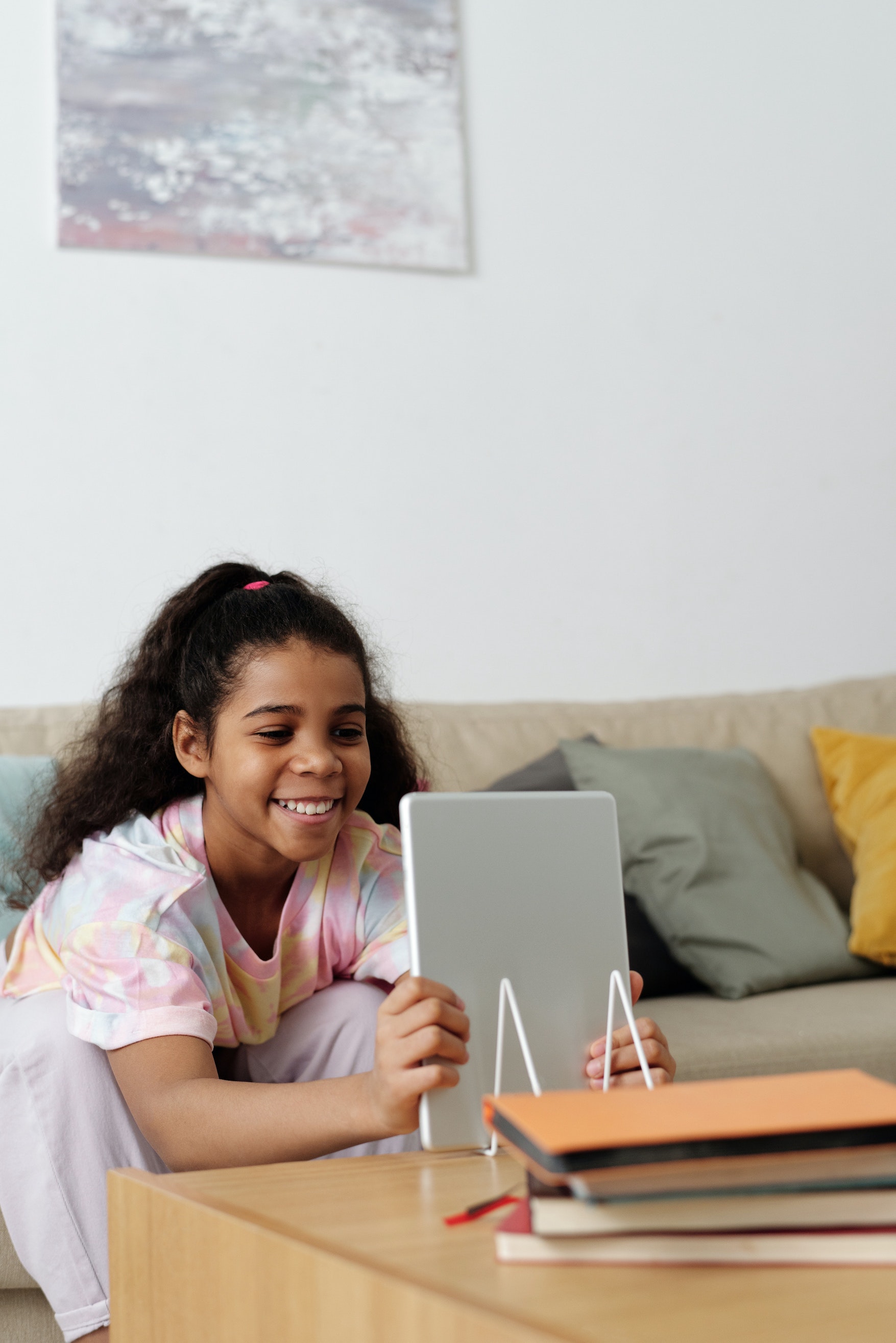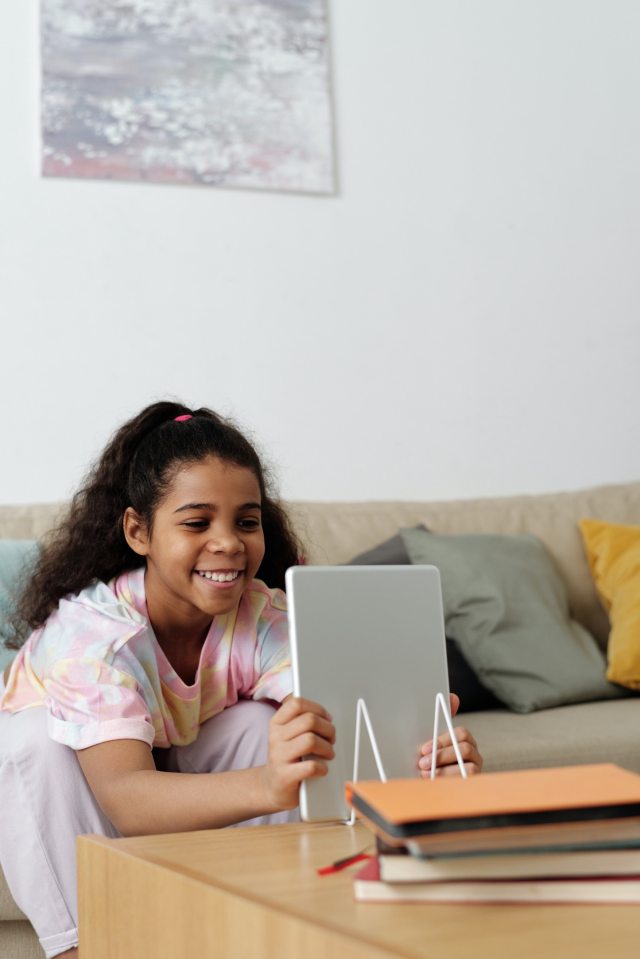
Gone for now are the days of traditional playdates, team sports, and even school recess. Who knew playing at the playground would be something we’d take for granted. We all have had to come to grips with this new normal, but as an adult, it’s easier to stay connected to your friends. But it’s important to remember that kids need to keep in touch just as much, if not more than we do. And they can continue to work on their playdate social skills.
There are many ways to keep your young one social and active with friends while on lockdown. And you can even keep working on those social skills strategies that you’ve been building on over the last several months.
Before you jump right in, there are a few things to remember to make sure your virtual playdate is a success. Ask yourself what your child tends to struggle with during play, such as joining in, sharing, managing emotions, becoming overly excited with a friend, being too bossy, or being too grumpy.
Then work on that skill and make it clear to your child that her mission for the virtual playdate is to practice that skill. For example, work on how your child talks with other children, review what you might say and what to do, role-play, and practice how a conversation might go if done virtually. Practice with family members first, and then when it comes time, help her join in with her friends.
This is the time to pick a playmate whose temperament will allow your child a chance to play better in a virtual environment and to practice using the social behaviors you are working on. Compatibility does not necessarily mean putting two like-minded children together. For example, two overly bossy, rule-oriented children might argue and a domineering child might overshadow a shy child.
Think about what games might work well in a virtual environment for your child. What activities can you try in an effort to stay connected? Younger kids may not have the vocabulary or the ability to hold a long conversation, but interactive activities can be just the right mix of fun and entertainment.
Plan a game together. Kids can get together on Zoom, Skype, Facetime, Facebook Messanger video, or any other online platform.
- Plan a scavenger hunt. Have the group gather online and then agree on a list of things they can hunt for while on a daily walk with their parents or siblings. Right now, there are many neighborhoods putting rainbows, bears, and other creative items in their windows. Have them find and take a picture of someone’s chalk art drawn on the sidewalk. Maybe they can hunt for a certain type of leaf or bug. They can count how many butterflies cross their path. The options are endless. When the hunt is over, the kids can regroup and compare notes on their next interactive virtual playdate.
- What about a fun game of HedBanz, Pictionary or Charades? These are games that can easily be played virtually.
- Have younger kids pick out a favorite storybook. Have them take turns reading to a friend. Kids can talk about when they got the book and why it is their favorite. Make it more interactive with Caribu. The app is free right now and you can choose a book from their extensive library.
- For the craft-minded kids, pull out the supplies and set up your virtual playdate at the dining room table. Kids can talk and draw together. Have a show and tell at the end of the playdate.
- If your child is reluctant to get online with other kids, have them become a pen pal. How fun would it be to stay connected by sending a friend a handwritten letter? Make it fun by including a drawing or adding one of your favorite stickers to share.
Debriefs are important. After any virtual playdate, debrief with your child. Children learn by reflecting on what they are doing and how it impacts others. The more you engage with your child, talk about the virtual playdate in a nonjudgmental way and after the playdate is over, spend some time chatting with your child about what they did well and celebrate their effort saying I heard you telling Julie what to do and what game to play. Ask your child to consider the feelings of her playmate, asking her what do you think Julie felt when you told her what to choose? What choices did Julie get to make? What choices did you get to make? Let’s look at whether or not that was fair together. Then also ask your child what they struggled with and make a plan and practice for the future.
Kids can learn that even though they have to distance themselves right now, they don’t have to forget about the ties they have to their friends.
